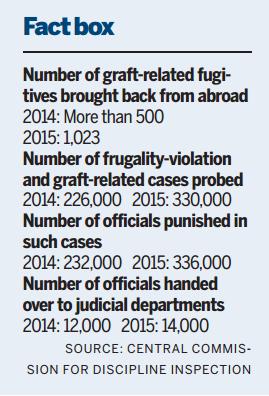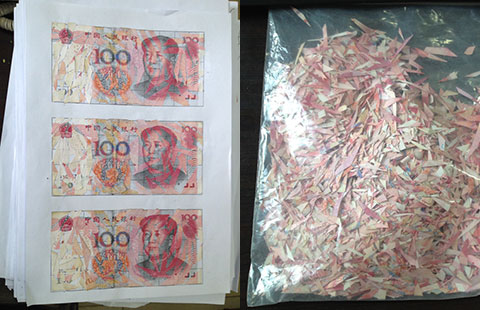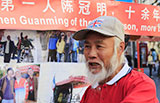Over 1,000 fugitives returned last year
By Cao Yin (China Daily) Updated: 2016-01-16 03:28
 |
|
Officials attending a news briefing held by the State Council Information Office on Friday include (from left to right) Wu Yuliang, deputy chief of the Central Commission for Discipline Inspection, Xiao Pei, vice-minister of supervision, Chen Xiaojiang, director of the CCDI's publicity department, Liu Jianchao, director of the commission's International Cooperation Bureau, and Luo Dongchuan, director of the CCDI's Case Review Department. Photos by Wang Zhuangfei / China Daily |
China will continue to fight corruption and bring back fugitives after making great progress by having more than 1,000 fugitives returned last year, the nation's top anti-graft watchdog said on Friday.
In the eight-month-long "Skynet" campaign, conducted since April by the Central Commission for Discipline Inspection of the Communist Party of China Central Committee, 1,023 fugitives were repatriated by the end of last year. Of those, 18 were on the most-wanted list.
Wu Yuliang, deputy secretary of the commission, said, "It is the first time that the number of the fugitives brought back to the nation is more than the number of new fugitives."
"The fear of corruption has set in, and efforts are underway to end corruption completely," Wu said during a news conference held by the State Council Information Office on Friday.
One high-profile fugitive, Ling Wancheng, who fled to the United States and became a US citizen, has interested the public for some time.
China continues to investigate the case and is negotiating with the US, said Liu Jianchao, director of the commission's International Cooperation Bureau.
The commission has demanded that the US extradite Ling to China. Ling, a wealthy and politically connected businessman, is the youngest brother of Ling Jihua, a high-level official who was held for investigation in July on suspicion of corruption.

Before the investigation, Ling Jihua was the head of the Party's United Front Work Department. Earlier, he oversaw the Party's inner sanctum as director of its General Office, a post equivalent to the US White House chief of staff, from 2007 to 2012.
In addition to the US, the countries that have extradited fugitives include Canada, Australia and New Zealand.
"Corruption has become a cross-border challenge that threatens the world's safety, development and prosperity, so a joint effort against graft worldwide is consistent with the interests of each country," Liu said. "On this issue, China is not an exception."
"We'll contribute to the anti-corruption work with a more open mind and efforts, while trying our best to push the ‘Skynet' campaign to return more fugitives, giving them no place to hide," he added.
Guo Weimin, spokesman and deputy director of the information office, said: "The fruit of the anti-graft campaign in such a short time also shows the Chinese leadership's determination and confidence in the fight."
Zhu Lijia, a professor at the Chinese Academy of Governance who specializes in public management and anti-graft studies, applauded the increasing number of fugitives who were repatriated last year. He attributed this to "our efforts in the campaign and more agreements signed with other countries on extradition".
"I'm glad to see that the strength of the efforts against fugitives living in developed countries such as Britain and the United States has been improved and the efforts have been speeded up," Zhu said.
"But there are still some key countries where fugitives are hiding that have not signed a clear extradition agreement with us, which is our main task to complete this year," he said. "The number of fugitives returned to China will, I believe, leapfrog after we reach such agreements with more countries," he added.
- Sansha to have full WIFI coverage this year
- China 'needs to cash in' on lottery craze
- China to land probe on dark side of moon in 2018
- Record numbers leaving mainland during Spring Festival
- China to ensure all citizens get registered
- China's first Arab Policy Paper sets out development strategies
- New fonts give Tibetans texting options
- LGBT tourism services eyed for growth prospects
- Lawsuits bloom under regional litigation process
- China strengthens anti-graft efforts for clean governance







